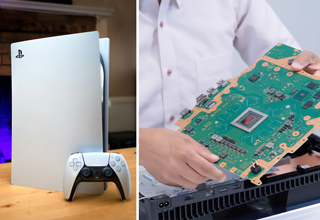VOLT vs. LEAF vs. '81 Rabbit
I read this article about why the Chevy Volt maybe doomed. The article was sort of a bait and switch and actually was more "pro" Volt than informative about it's projected downfall. The only real detraction was it's price. $41K
So for those of you living under a rock...yes Geico can help you save 15% or more on car insurance and the Chevy Volt is an electric car that you plug in. It does also have a gas back up system. It's only direct competition is the Nissan Leaf. The Leaf is an electric only vehicle at several thousands of dollars less than the Volt.
So lets start with the VOLT they get 35 MPC (miles per charge) and with gas (9.3 gal tank) it gets about 35/mpg. Total range for this car....about 400 Miles. Since it has 2 engine they each have different HP - the electric engine has 150 HP, and the Gas engine has 80 HP. It comes with todays great features in a car, stereo, MP3 and iPod Docking, Cameras, and navigation etc...
COST $41,000 - yikes
Now for the LEAF. Its battery only vehicle. It has a driving range of about 73 miles. No carbon emisisons, Top Speed of 90 MPH with 107 HP. It comes with all the bells and whistles and seats 5.
COST $32,000
So I was thinking about these cars and why we as a country need to move towards these, and other other hybrid and more fuel efficient cars. Clearly we all know that the cost of gas has been going up and our dependence on foreign oil is the main cause. But I also know that oil companies are raking in hundreds of billions in profits each quarter (that's nearly a TRILLION $ per year fo just ONE COMPANY in PROFIT)
Then I remembered growing up and we had a Volkswagon Rabbit. It was about the size of a Volt or Leaf. The biggest difference was that it was a diesel. Carborator on the engine, seated 4 or 5.
no real bells and whistles...then again it was the 1980's.
The Rabbit got about 60 MPG with equivalent HP and engine size of todays compact cars. Because it was a diesel the emissions were much cleaner than regular gas. As the need for more power, speed and height grew so did the engine size; at the cost of efficiency. The rabbit was ended in 2006 and renamed the Golf. Now, as the Golf it gets around around 35 MPG.
So what happened?
I also remember one of my econ teachers talking about a plan by oil companies and car manufactures. The plan was to buy up all the patents for carburators that were more fuel efficient than fuel injection, especially the diesels. The idea was that if they controlled the patents then they could control the market and price of gas. Apparently this worked. This was also the time frame when GM was spearheading it's "engineered obsolecence" program. This was where they would build a part that would break or need to be replaced just after the warranty period. They acutally invented the term and process.
For a long time the US has a strangle hold on the world car market...now Toyota has the #1 spot.
GM and Ford, Shell and Exxon they had a good thing going. Until they were outdone and the price of gas went through the roof, thanks to our need for size and speed.
NOW the cycle of car life has come full circle. Back are the tiny Micro cars like the Fortwo and the Mini, (which don't do that great on MPG's for the size and price) Here are the hybrids and electric cars.
MY QUESTION IS WHERE ARE THE "Rabbits" of the world?
We know we can do it, it was done 35 years ago. All things being equal the Rabbit from the 80's would be the best thing going today. We have the material tech to make it lighter, and evem more efficient. VW is just as guilty for not keeping up the standards of efficiency. BUT they do have a better track record. - The problem with them is cost and marketability.
SO based on all the things I see and the "reasons" for high prices and shadiness of big oil and car manufacturers....
I give the nod to the 81' Rabbit. - which you can get for around $500 - $1000. Because the engine isn't all "computerized" you can easily restore it.
One last little fact about the diesel engines and VW - they used to race in the INDY 500 and other long races...they would beat the hell out of the other cars because they never had to pit. The draw back was over heating...this is a technology issue that we would no longer have.






8 Comments